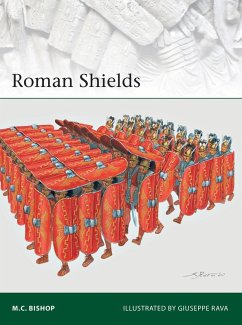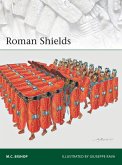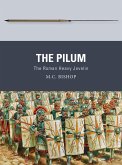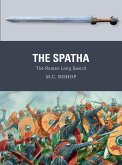The introduction of the scutum in the 4th century BC revolutionized the way the Romans fought. Instead of being purely defensive, the shield became a weapon in its own right. Using the top edge or boss to punch an opponent, or the lower rim to smash down on their feet, it served to unbalance an enemy and allow the sword to do its work. The versatility of the scutum was characterized by the testudo, a formation the Romans used offensively like a pedestrian tank. Meanwhile, other shield types equipped the auxiliaries who fought alongside the legionaries. The curved, rectangular scutum survived into the 3rd century AD, only to be replaced by an oval, slightly domed shield derived from the oval shields of Early Imperial auxiliaries.
Drawing together historical accounts, excavated artefacts and the results of the latest scientific analyses of the boards and fittings, renowned authority M.C. Bishop reveals the development, technology, training and use of the scutum and other Roman shield types.
Drawing together historical accounts, excavated artefacts and the results of the latest scientific analyses of the boards and fittings, renowned authority M.C. Bishop reveals the development, technology, training and use of the scutum and other Roman shield types.









